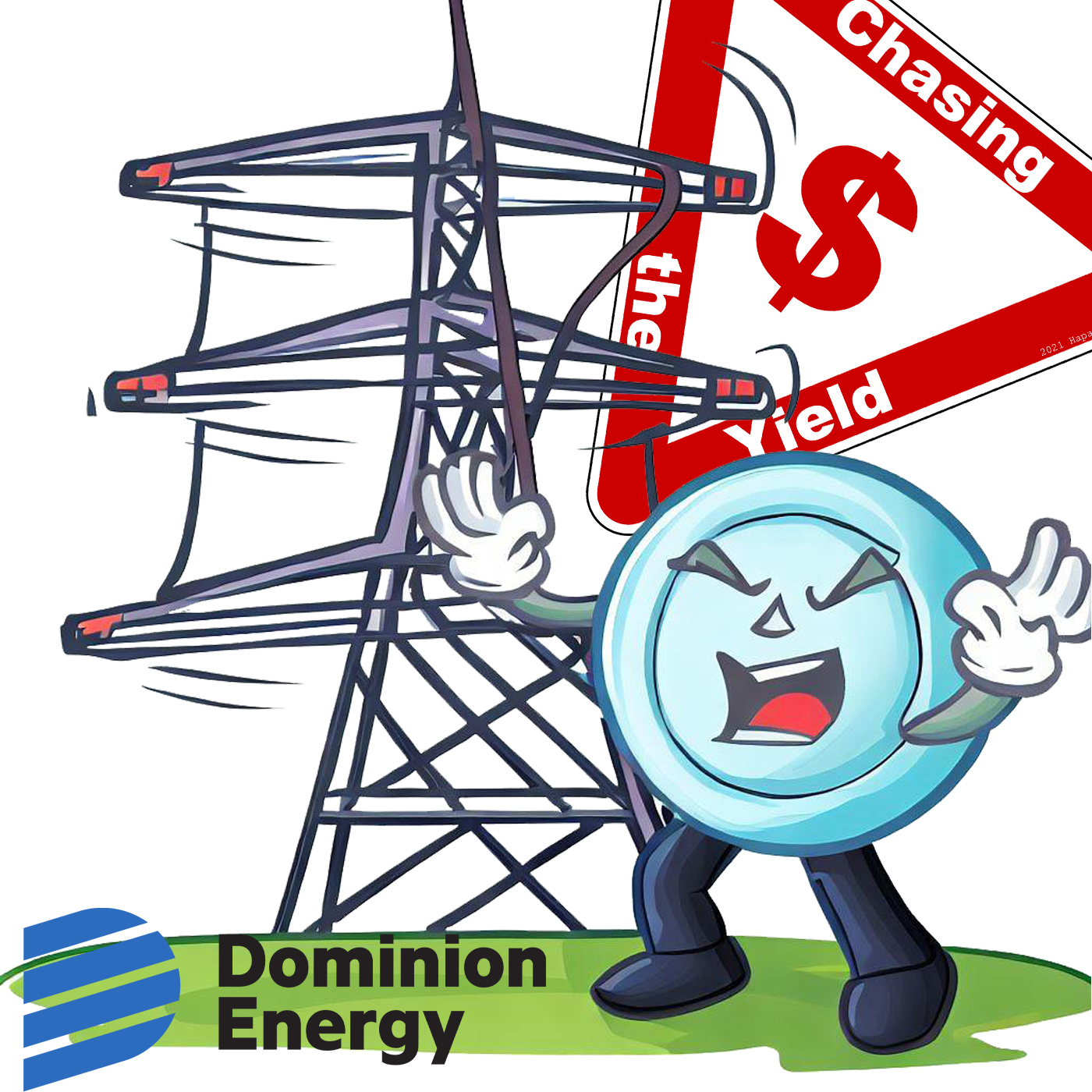Dominion Energy has been in the energy business since 1898. It’s one of the biggest utility companies in the U.S. and serves about 7 million customers in Virginia, the Carolinas, Ohio, and Utah electricity and gas.

Dominion has steady and predictable income because it is regulated utility. Regulated utilities are like monopolies that are controlled by the government. They spend a lot of money to build and maintain power plants, transmission lines, and distribution networks that cover a large area.
The government limits the competition by deciding which companies can build new power plants. And even though regulated utilities are monopolies, they can’t charge whatever they want for their services. The government sets the price in an effort to make it fair for the customers while giving the utility enough incentive to invest in safe and reliable service.
Dominion’s main business is Virginia Electric and Power Company, which makes more than half of its profits. It operates in Virginia and North Carolina, two states that have good regulatory environments, according to research group called RRA.
These states in which Dominion operates have fast-growing populations and businesses, which makes the regulators want to encourage more infrastructure spending by giving higher returns on capital and allowing higher electric rates over time.
South Carolina, where Dominion has its next biggest business, is also one of the fastest-growing states in the country. This helps Dominion grow its income organically. In short, most of Dominion’s utilities have good relationships with the regulators and good prospects for growth.
But even though Dominion operates in friendly states, it had to cut its dividend in 2020. This ended a long history of paying dividends without interruption for over 90 years.
This happened because Dominion decided to sell its natural gas business, which made about 25% of its profits. Without this cash flow, Dominion would have paid out more than 100% of its income as dividends, which wasn’t sustainable. So it had to lower its dividend.
But, by selling its natural gas business, Dominion became a more focused with one of the best growth rates in the industry. It also plans to increase its dividend by 6% every year until 2026.
Dominion’s business is more aligned with the trend of clean energy, and its income has become more predictable with regulated utilities making up 90% of its operating earnings.
Dominion Energy is undergoing a strategic review to improve its business. The review could involve selling some of its assets, such as its stake in a gas liquefaction facility, which it already agreed to sell to Berkshire Hathaway for $3.3 billion. However, the outcome of the review is still uncertain and could affect the company’s dividend safety and growth prospects. Dominion has withdrawn its earnings guidance for the year and said it will share the results of the review by the end of this quarter. The company has also reaffirmed its commitment to maintain its current dividend, which has a high payout ratio of near 65%. Dominion’s stock trades at a low valuation compared to its peers and has an attractive portfolio of regulated and renewable assets. We are keeping our small stake in Dominion in our portfolios until we learn more about the review and its implications for the company’s future.
DISCLOSURE
Dominion Energy (D) has a current dividend yield of 5.41% and is rated as “Safe” by SimplySafeDividends. I hold D in my Low Yield Portfolio. In total D is 0.7% of my portfolio.
Podcasting 2.0 & Value4Value
This is a Podcasting 2.0 compatible podcast. This means if you’re listening to this podcast on a Podcasting 2.0 compatible app you’ll have access to transcripts, chapters, and chapter images that accompany each episode. Please go to podcastapps.com to download and support these independent apps and go to podcastindex.org to support Podcasting 2.0.
Use the apps below to directly support independent podcasters. It’s easier than you might think to stream fractions of bitcoins to this podcast or any other podcast that is compatible with the Value 4 Value model. This cuts out the need for advertising.
Or go to podcastapps.com to find an app that works for you.
What is Value4Value?
Value4Value streaming payments enables listeners to send Bitcoin micropayments to podcasters as they listen, in real-time. Go to valu4value.info for everything you need to know to begin directly supporting your favorite podcaster.
Disclaimer
ChasingTheYield.com and Kevin Bae are not registered investment advisors, brokers or dealers. Kevin Bae may have positions in any financial instrument, product, or company mentioned on chasingtheyield.com or on the Chasing the Yield podcast. Information provided by chasingtheyield.com and the Chasing the Yield Podcast is provided for information and entertainment purposes only and are not intended as advice or a recommendation or an offer or solicitation for the purchase or sale of any security or financial instrument. All opinions are based upon sources believed to be accurate and are provided in good faith. No warranty, representation, or guarantee, expressed or implied, is made as to the accuracy of the information contained herein. Past performance is not an indicator of future results.
Please contact an investment professional if you have any questions regarding an investment.
Contact
For questions or comments contact me at mail@chasingtheyield.com



